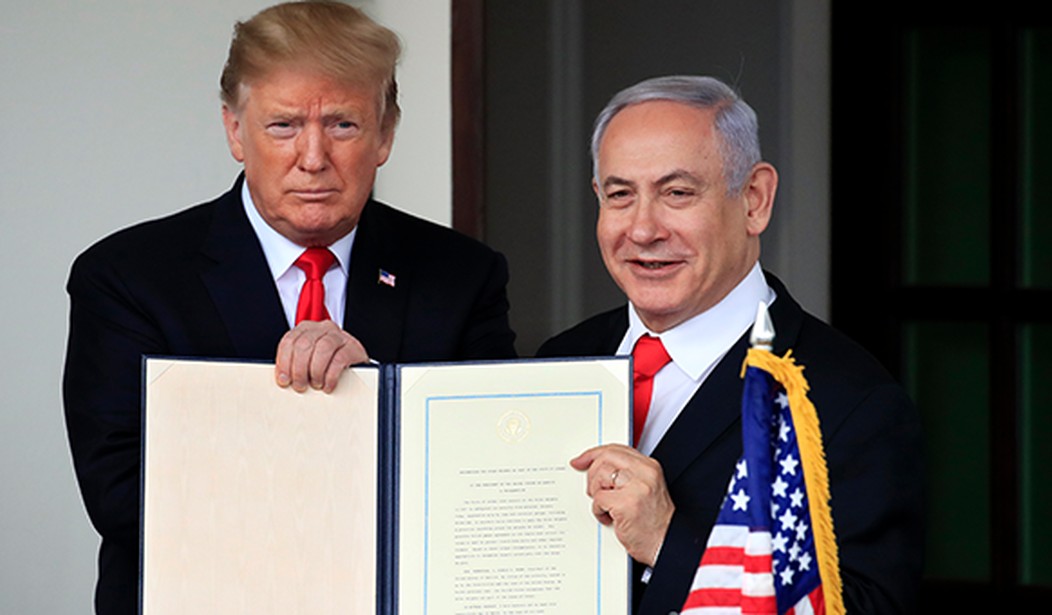It’s the end of an era, as today, longtime U.S. and conservative ally Benjamin Netanyahu ceded the prime ministerial role he’s held in the Israeli Parliament since 2009.
Earlier, at our sister site Townhall.com, Rebecca Downs shared the news of his ouster.
On Sunday, Benjamin Netanyahu’s tenure as Israeli’s prime minister came to an end after 12 years, making him the longest-serving prime minister.
Although a coalition had been forming for some time now, on Sunday it became official when parliament voted in favor of this “government of change” led by nationalist Naftali Bennett, a 49-year old former defense minister.
Her piece also pointed to Axios reporting on how (as they put it, “hours before a vote to oust him”) Netanyahu used his final speech as prime minister to strike at the Biden Administration’s — and, by extension, Bennett’s — weak-kneed approach to Iran. It’s the no-holds-barred, not at all diminished Benjamin Netanyahu whom conservatives are very familiar with: (emphasis original)
Then Netanyahu rose to speak. He accused Bennett of being weak and untrustworthy (noting that he’d broken a campaign pledge by forming a government with Lapid), and said his protege-turned-rival would refuse to stand up to Biden on Iran.
- Netanyahu claimed that the Biden administration had asked him to keep their disagreements on Iran private, but that he refused to do so, valuing his hard line on Iran over smooth relations with the U.S.
- Netanyahu positioned himself as the only man standing between Iran and an arsenal of nuclear weapons, and claimed Iranians were celebrating his departure. He also compared Biden’s Iran policy to the refusal of the U.S. to bomb the Auschwitz concentration camp in 1944.
- He also said he’d rejected U.S. demands to freeze settlement construction and opposed Biden’s plan to reopen the U.S. consulate in Jerusalem, which handled relations with the Palestinians before being shut down by Donald Trump. Again, he claimed Bennett lacked the stature or credibility to take similar stands.
The New York Times reported on Netanyahu’s 35 minutes of remarks, in which he said, in part:
“Try to damage as little as possible of the magnificent economy we are handing over to you, so that we can fix it as fast as possible when we return,” he said in a typically unapologetic speech that oozed scorn and confidence that he would soon be back.
[…]
“The new United States administration asked me to keep our disagreements in nuclear matters private, not to publicize this,” Mr. Netanyahu said. “I said I would not do this, and I will tell you why: Because the lessons of history stand before our eyes.”
He cited the United States’ refusal to bomb railroad tracks leading to Nazi extermination camps in World War II or to bomb gas chambers there, “something which could have saved millions of our people.”
“We had no state, we had no army” at the time, he said. “But today we have a voice, we have a voice, and we have a defending force.”
My colleague Shipwreckedcrew wrote a thorough explainer on the anticipated change-over the first week of June:
I don’t pretend to be an expert on Israel’s complicated parliamentary government system, but as I understand what has happened, in elections held in March, Netanyahu secured the first opportunity to form a new coalition government when his Likud party won the largest number of seats in the 120 member Knesset, but not an outright majority. It takes the vote of 61 seats to form a new government, and under Israeli law, Netanyahu had a prescribed period of time in which to do so, but he was unsuccessful.
That opened the door to Lapid’s efforts with his Yesh Atid party having secured the second-highest number of seats in the Knesset, and he had until midnight on Wednesday to accomplish that task. It is being reported that approximately 30 minutes before the midnight deadline, Lapid informed the President of Israel that he had reached an agreement with the leaders of seven other parties, and altogether they controlled the minimum number of 61 seats needed to form a coalition government to take the place of Netanyahu’s coalition.
Godspeed, Bibi.













Join the conversation as a VIP Member